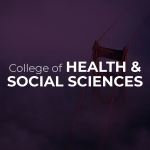The Teaching Academy Podcast was launched in 2021 as part of the CHSS Teaching Academy’s effort to foster teaching excellence in the health and social sciences by sharing resources that enhance teaching effectiveness and promote optimal faculty performance and student success. Our podcast interviews, moderated by members of the Academy’s advisory committee, include conversations with faculty members focused on how they incorporate equity and social justice into their teaching. These discussions, along with our Virtual Resource Center, are meant to offer practical support and guidance that help faculty members at all ranks become exceptional teachers.
Episodes
Canvas: What You Need to Know!
July 10, 2023
In this episode, Associate Professor of Nursing Carrie Holschuh engages with Cristina Zuniga, lecturer in the School of Nursing, and Sherria Taylor, associate professor of Child & Adolescent Development, to discuss the CSU-wide transition to using Canvas. They also provide tips and tricks on how to navigate the infrastructure and optimize your Canvas site.
Additional Canvas resources offered by San Francisco State University’s Center for Equity and Inclusion in Teaching and Learning (CEETL) can be found on CEETL’s website.
Teaching Clinical Skills Remotely
May 27, 2022
The abrupt transition to teaching clinical skills using remote modalities during the pandemic created a unique problem for the College of Health & Social Sciences. In this podcast episode, moderator Carrie Holschuh, Ph.D., associate professor of Nursing, checks in with Kathleen Shea, Ed.D., MSN, RN, CHSE, assistant professor of Nursing; Sarah Pawlowsky, PT, DPT, OCS, associate clinical professor of Physical Therapy; and Tiffany O'Shaughnessy, Ph.D., associate professor of Counseling, to discuss how each department adjusted to the changes.
The School of Nursing, Department of Physical Therapy and Department of Counseling all had their own struggles with accrediting bodies and the shift to remote learning. In the Department of Physical Therapy, instructors had to use their children and partners to demonstrate techniques for students. Nursing instructors resorted to unorthodox measures to teach their students clinical skills, including using hollowed out grapefruits to demonstrate how to pack wounds. Because telehealth was not authorized prior to the pandemic, continuing education providers in Counseling had to produce crash courses on telehealth to get their students up to speed. The importance of community and the benefits of recording classes using closed captioning are also highlighted.
Approaches to Coming Back to In-Person Classes
March 23, 2022
Associate Professor of Sociology & Sexuality Studies Valerie Francisco-Menchavez and Assistant Professor of Sociology & Sexuality Studies Jen Reck engage in conversation about what it has been like to return to in-person instruction. Faculty and students alike have had to grapple with their own feelings around returning to campus and misgivings about being back in the classroom. Reck treated the first in-person session as a “get to know you” time to help students get comfortable with one another and be together in one space. Many of our students are on a college campus for the first time ever, so it is important for instructors to remember that acclimation is essential for the remote to in-person transition.
Heart and Soul of Teaching
June 17, 2021
Moderator Carrie Holschuh, associate professor of Nursing, sits down with panelists Wei Ming Dariotis, professor of Asian American Studies, and Vivian Chavez, associate professor of Public Health, to discuss vulnerability in teaching and qualities in teaching that aren’t quite quantifiable. Dariotis feels that although not many qualities of teaching are quantifiable, teaching should be quantified on some level to meet standards. Chavez believes that quantifying teaching would just be generalizing to fit a cookie cutter mold. While remote, there is the temptation to pre-record lectures, but then students and teachers are not afforded the opportunity to grow together. Community learning is a big part of contact hours and there needs to be humility among the group. Professors should model vulnerability in an effort to get students to open themselves up to learning.
Mothering and Teaching During Pandemic Times
June 17, 2021
Moderator Valerie Francisco-Menchavez, associate professor of Sociology & Sexuality Studies, sits down with panelists Aiko Yoshino, associate professor of Recreation, Parks & Tourism, Paige Viren, associate professor of Recreation, Parks & Tourism and Carina Gallo, associate professor of Criminal Justice Studies to discuss the intricacies and challenges of navigating motherhood, teaching and scholarship during the pandemic. Panelists found that finding time and space to be educators, as well as having to become a teacher for their own children, were among the most challenging aspects of mothering during the pandemic. Learning how to teach online and in such small spaces was also a significant challenge for educators who had previously been primarily hands-on. The Teaching Square Program has served as somewhat of a solution for these frustrations in that it has provided an outlet where colleagues can engage with and support one another. Lessons from mothering and teaching during the pandemic include the importance of holding boundaries, making time for oneself and fostering meaningful connections.
